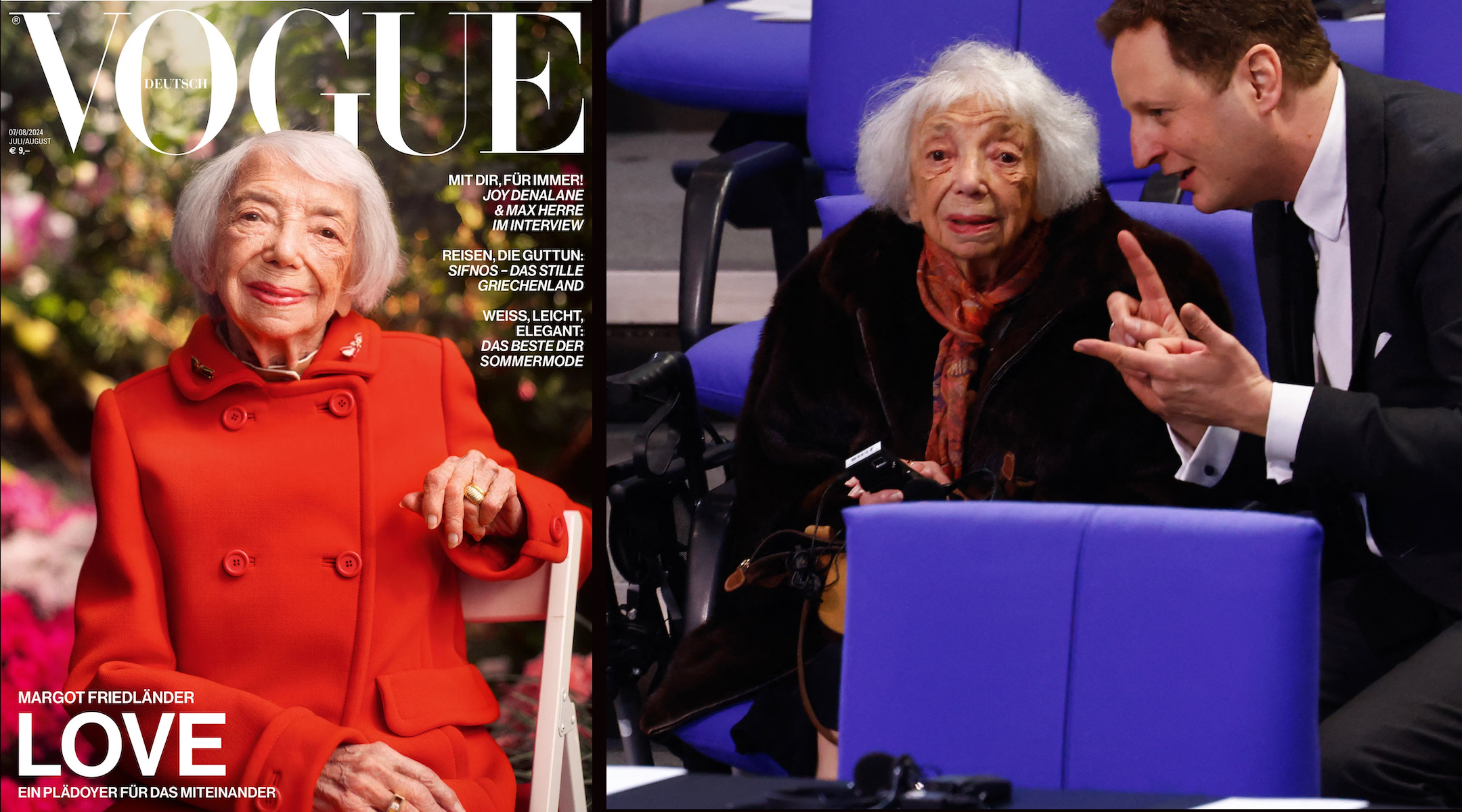For its latest cover model, Vogue Germany selected a celebrity who regularly hobnobs with visiting dignitaries and walks the red carpet at film premieres: Margot Friedländer, 102, one of the oldest and most prominent Holocaust survivors in the world.
In addition to documenting Friedländer impeccable attire and indefatigable spirit, the Vogue article includes her public condemnation of the rise of the political far right in Germany.
About the rise of the far-right Alternative for Germany party, known as AfD, and the spike in antisemitic incidents amid the Israel-Hamas War, Friedländer told the magazine, “I am appalled.”
Friedländer was born and raised in Berlin and hid there after the Nazis rose to power and began deporting and murdering Jews. She was apprehended in April 1944 and sent to the Theresienstadt concentration camp, where she remained until its liberation a year later. Her entire family had been murdered.
Friedländer and her husband, whom she met in Theresienstadt, moved to New York City, where they lived an unassuming life in Queens. But after her husband’s death in 1997, she began writing about her Holocaust experience, ultimately catching the eye of a filmmaker who brought her to Germany over the course of making a documentary about her.
The trip — which Friedländer had once sworn never to make — changed her life. She moved back permanently in 2010, at age 89, and quickly became a local celebrity, according to a Forward profile that appeared three years after her arrival. She has made hundreds if not thousands of appearances where she tells her story, and increasingly has taken center stage in a country haunted by its Holocaust history.
Last year, she met with Second Gentleman Doug Emhoff during his visit to Berlin. She also presented a prize to Guy Nattiv and Helen Mirren, the director and star of “Golda,” the biopic about Israeli Prime Minister Golda Meir. Recently, according to the Vogue article, “she was invited to a member of the Bundestag’s party at Soho House and celebrated until the lights came back on.”
The Vogue reporter, Miriam Amro, met with Friedländer four times over several months, and a photographer took glamor shots of her in luxury clothing at the Botanical Garden of the Free University of Berlin.
“Margot Friedländer seems to become more energetic each time,” Amro writes about their conversations. “As if her mind were following a reversed time calculation. Every word she says is full of positive power. A woman who has experienced the worst speaks without being bitter. How is that possible?”
JTA has documented Jewish history in real-time for over a century. Keep our journalism strong by joining us in supporting independent, award-winning reporting.






